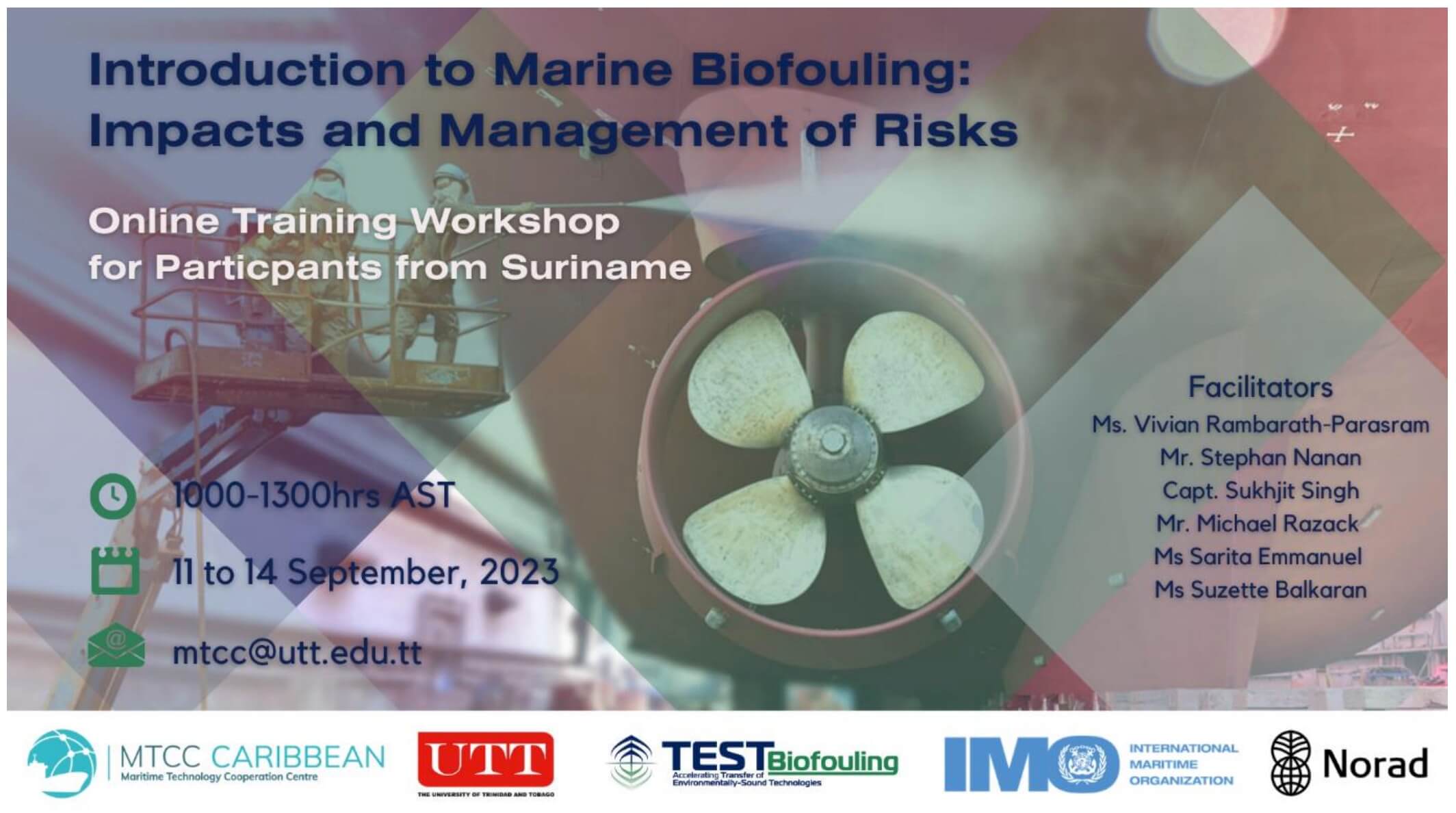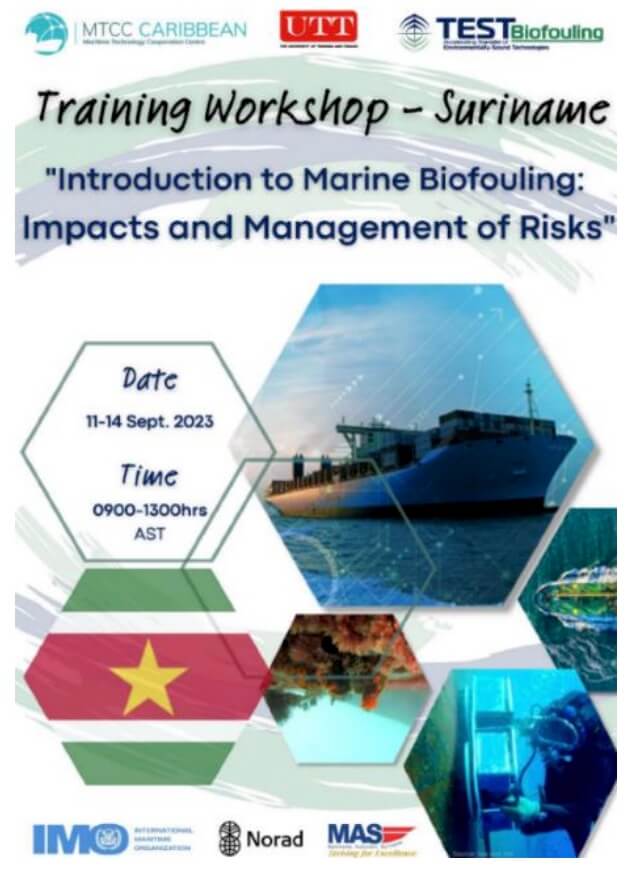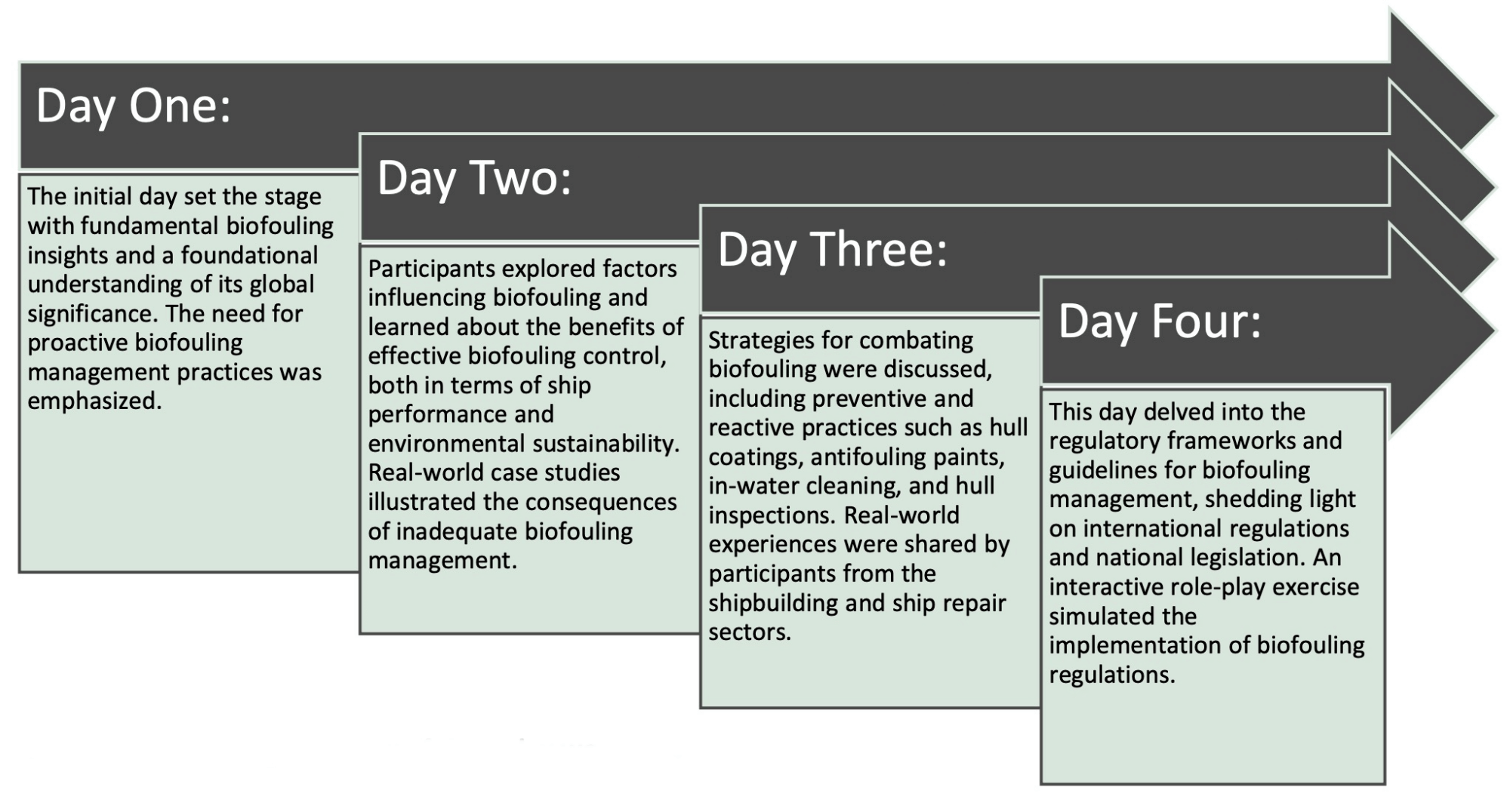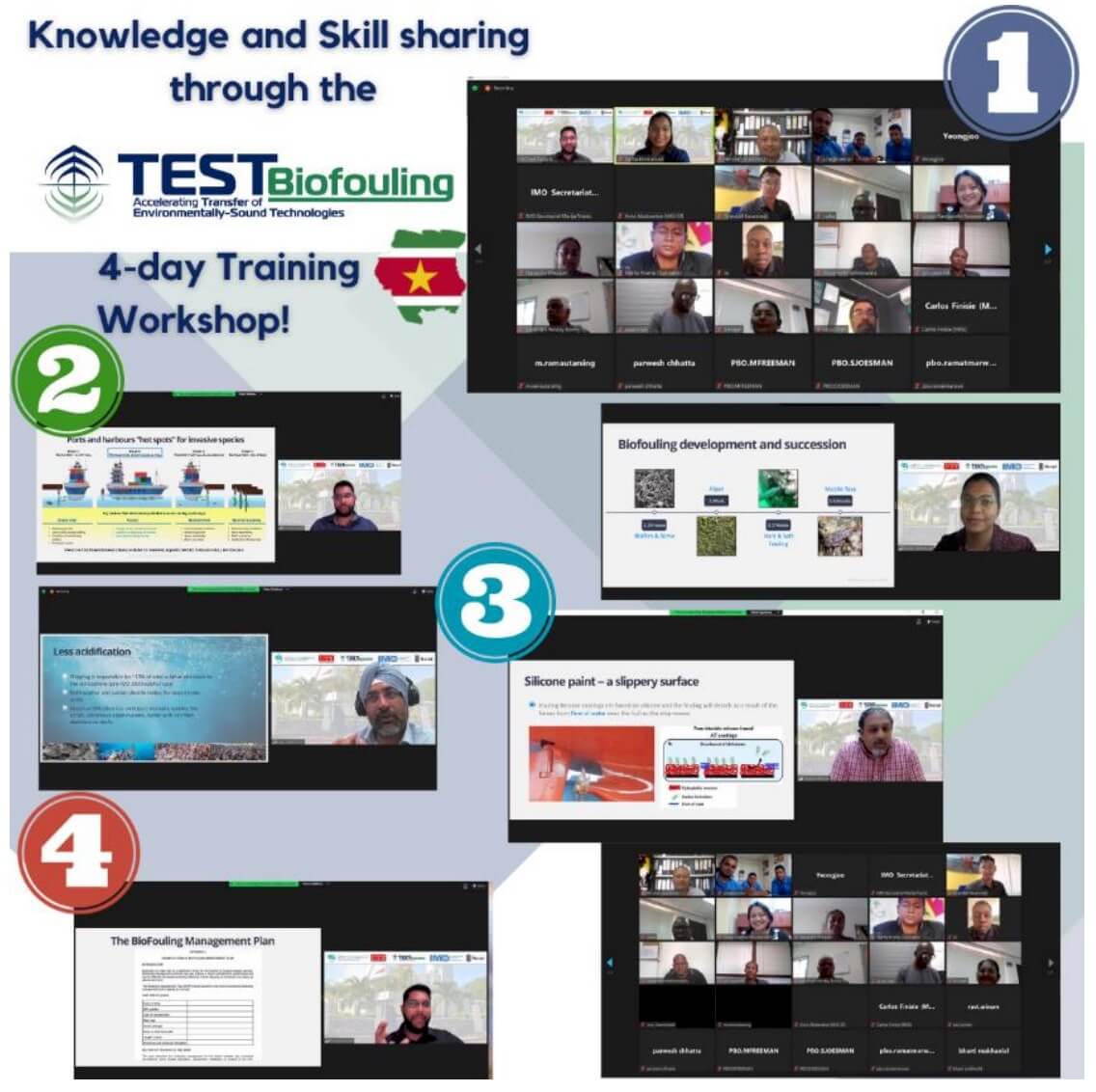

Figure 1: Flyer advertising the workshop
The Maritime Technology Cooperation Centre (MTCC) Caribbean, a regional partner under the International Maritime Organization (IMO), has concluded a highly successful four-day virtual training workshop on “Introduction to Marine Biofouling: Impacts and Management of Risks” in Suriname. This essential training event was conducted as part of the IMO-Norad TEST Biofouling Project, aiming to expand knowledge about biofouling management and its role in the introduction and spread of invasive aquatic species.
Achieving Capacity Building Goals
The workshop offered in-depth insights into marine biofouling and its ecological significance, attracting a diverse group of 25 maritime professionals and stakeholders from Suriname. Participants represented various sectors, and their active engagement underscored the importance of this crucial capacity-building initiative.
Highlights of the Workshop
The workshop spanned four days, addressing seven key themes, each associated with a dedicated training module. These modules were meticulously
designed to deliver informative and solution-oriented content, ensuring a comprehensive learning experience. Participants enjoyed expert-led sessions, case studies, quizzes, and interactive activities, facilitating knowledge dissemination and a deeper understanding of biofouling-related challenges and their management.

Figure 2: A summary overview of the 4-day workshop

Figure 4: Representatives from the IMO, MTCC Caribbean and Maritime Authority of Suriname for the welcome address on the 1st day.

Figure 3: Images from the Virtual Training Workshop
Outcomes and Feedback
Participants left the workshop with enriched knowledge, better equipped to navigate the complex field of biofouling management. The engagement level was high, with attendees rating the course as very good to excellent. The role-playing activity, gamified Kahoot quizzes, and group discussions contributed to a positive learning experience.
Looking Forward
The success of this virtual training workshop reinforces the commitment to further education on biofouling-related topics. Participants expressed their interest in technology for in-water cleaning, environmental concerns, stakeholder involvement in convention requirements, and practical
demonstrations.
As the TEST Biofouling Project moves forward, MTCC Caribbean is preparing for the next training workshop in Jamaica. Lessons learned from the Suriname workshop will be used to improve and expand future capacity-building events. The project’s continued focus includes increasing gender diversity and engaging international financial institutions to ensure the effective implementation of the IMO Biofouling Guidelines, marine biodiversity protection, and climate change mitigation in the Latin America and Caribbean region.
The success of the Suriname workshop underscores the maritime community’s commitment to addressing biofouling challenges and embracing sustainable practices for a cleaner, more environmentally responsible future
